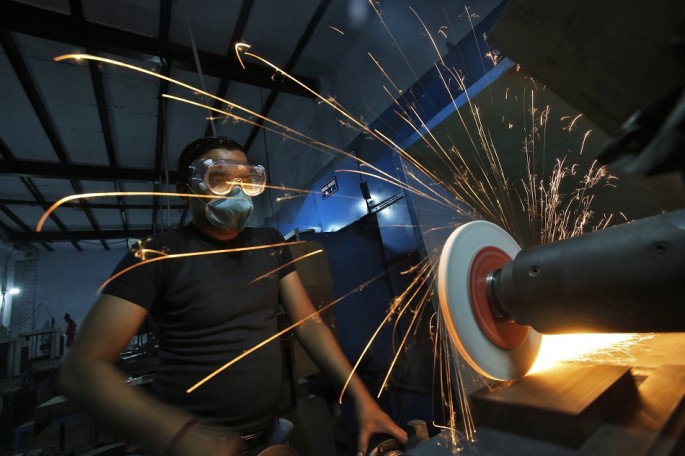Industry groups are awaiting Indian Prime Minister Narendra Modi to fill in the details of his policy initiative called "Make in India" enticing companies to manufacture in the country.
This is expected when his government presents its budget on Saturday.
As part of the program, Modi plans to raise the share of manufacturing in the economy to 25 percent by 2022 from 18 percent now. The target is to create 100 million jobs to absorb the world's largest working-age population.
Attracting investment is key for Modi to provide jobs for the 64 million new workforce entrants by 2021, when almost two-thirds of its 1.2 billion people will be of working age.
Currently, most Indian companies would rather operate their factories in China where they would pay workers three times more than they would at home.
Congestion at ports, lack of skilled workers and shortage of raw materials offset any advantage India has with cheaper labor costs, according to Himanshu Baid, head of New Delhi-based Poly Medicure Ltd., which has an annual sales of $53 million.
"It was a risk for a small company like ours, but it worked as China is an easy place for business," Baid said.
While India suffered from a stifling bureaucracy that required permits to produce goods until 1991, China emerged with a manufacturing industry accounting for about a third of its economy.
India also fell to 142 of 189 countries on the World Bank's index on ease of doing business, falling behind Ethiopia, Yemen and Sierra Leone.
"Ancient and archaic rules have to be all removed," said Sumit Majumdar, a professor at University of Texas in Dallas.
Modi has taken some steps to make it easier for companies to do business, including moving the application process for industrial licenses online. The prime minister has also prioritized military equipment made or assembled in India to cut reliance on foreign purchases.
Modi's administration must also clean up a number of tax rates wherein those imposed on components are higher than the finished product.



























